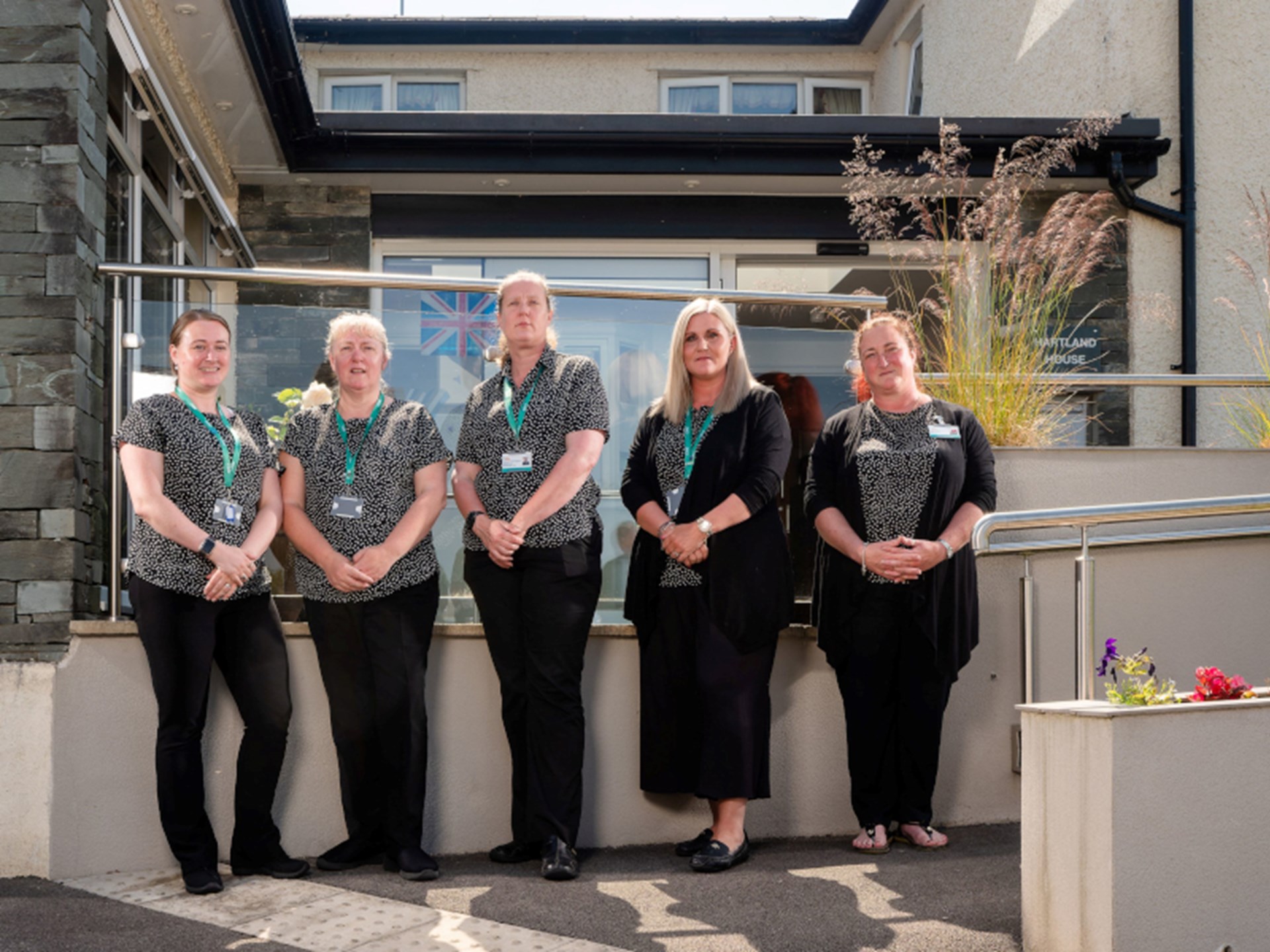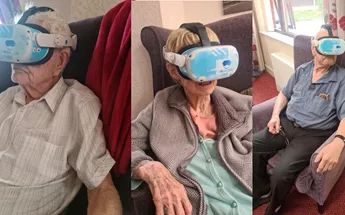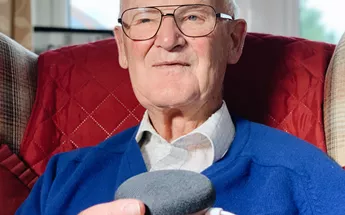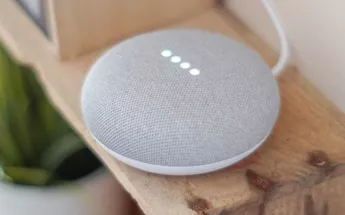Embracing AI to Prevent and Detect Falls
Futuristic technology that can detect and even predict and prevent falls is being tested at one of Abbeyfield’s residential care homes in Cumbria. The technology also eliminates the risk of life-threatening ‘long lies’ where a person falls, typically during the night, and can remain on the floor for an extended period.
The pilot, involving the installation of intelligent AI-powered Nobi smart lamps in residents’ bedrooms, is taking place at Hartland House, which is managed by the Abbeyfield Lakeland Extra Care Society.
If a resident falls, the smart lamp detects this immediately and speaks to the resident, asking if they are okay. In the event of no response or a call for help, the intelligent lamp is pre-programmed to send an alert to care staff plus a computer-generated outline image to show where and how the fall has occurred.
As well as ensuring no-one is left on the floor following a fall (the alert to care staff will ensure attendance within minutes), the lamp also helps to prevent falls from occurring. When a resident sits upright in bed at night the lamp will shine soft light upwards to gently illuminate the room, and if they then stand up to go to the bathroom, for example, the smart lamp will illuminate the entire room.
The AI technology built into the Nobi smart lamp is even able to predict certain falls. Changes in walking pace, length of stride and even the resident’s posture when sitting will be detected and can be used to alert caregivers of a potential risk.
The pilot is being funded by NHS Lancashire and South Cumbria Integrated Care Board (ICB), which organises health and care services across the region.
Asim Patel, chief digital officer at NHS Lancashire and South Cumbria ICB, said, “We are really interested in how technology can be harnessed to predict and prevent falls in the future and how it can be used to support our care workforce.
“Falls are the biggest reason for hospital admissions in our region and this puts huge pressure on care staff and the NHS. Piloting this new type of technology is really exciting because not only could it reduce hospital admissions significantly, but it could prevent some of our more vulnerable older people from seriously injuring themselves when they fall.”
“One of the added benefits of the lamps is that they help us to understand falls that occur. When a resident falls they typically can’t remember how or why they fell, but the clever Nobi lamps are able to show us a period of 15 seconds before and 15 seconds after a fall as well as sending us a still image of the person on the floor. This sort of information is invaluable, giving us a far better understanding of the incident and how it can be prevented in the future. Use of the lamps also makes our care team more efficient as the need for unnecessary checks is eliminated. This means that our carers can spend more time with the residents who need their help. At the same time we are bringing added peace of mind to families so it really is a win-win situation.”
Leanne Scrogham, Registered Manager of Hartland House

Around a third of people aged 65 and over, and around half of all people aged 80 and over, fall at least once a year. Being unattended following a fall is life-threatening and the length of time they are on the floor has a significant impact on the person’s recovery following a fall. Fast assistance after a fall is therefore crucial in terms of saving lives, improving recovery, reducing hospital stays, and decreasing care needs after hospitalisation.
Read more incredible stories from our houses and homes
Doctor's orders: VR tech brings wanderlust to Downing House residents
Residents at Downing House have been experiencing the benefits that virtual reality (VR) technology can bring for those living with dementia and other impairments.
The impact of voice technology on loneliness and isolation
A group of our residents were involved in a trial to test the impact that voice technology can have on loneliness and social isolation. The results were incredible.
Can voice technology help to reduce loneliness in older people?
A group of residents at the Abbeyfield Wessex Society’s Westbourne House are taking part in a trial to test the impact of voice technology on loneliness and isolation in older people.


